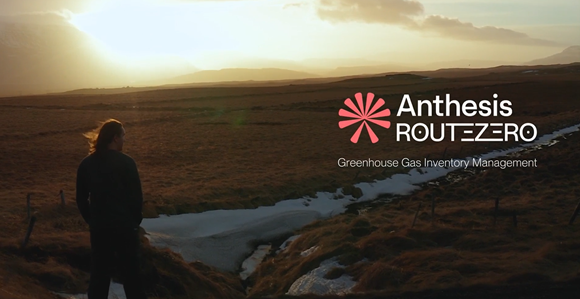Contents
- NGER Review – 5 Key Outcomes
- What the Outcomes Mean for Reporters
- Steps for NGER Reporters to Take Now
Share this article
The Australian Government’s recent response to the Climate Change Authority’s (CCA) 2023 review of the National Greenhouse and Energy Reporting (NGER) legislation marks a new shift for NGER reporters. This latest NGER Review (in a five-year cycle) sees the government agreeing to most of the CCA’s 25 recommendations, with major changes on the horizon, as well as some immediate ones that have already been implemented and require close attention and action from NGER reporters and their teams in the months ahead.
Here’s a breakdown of the big-ticket items from the NGER Review and what they could mean for your reporting processes.
NGER Review – 5 Key Outcomes
1. Urgently improve the accuracy of methane emissions reporting
One of the most critical changes in the NGER review is the focus on improving the accuracy and transparency of methane reporting. This will first be reflected by phasing out the more basic method (method 1) for open-cut coal mines covered by the Safeguard Mechanism, to higher-order methodologies. This change will happen over the next two years, with the largest open-cut coal facilities needing to update their method by 1st July 2025. This will be expanded to fugitive methane from other sources in the future.
The CCA also recommended that the higher-order methods be urgently reviewed with respect to their requirements, and made several recommendations around methane verification. This means greater verification and assurance that fugitive methane is accurately reported.
2. Increased Transparency and Data Accessibility
The government has agreed to publish more detailed emissions data at the facility level, starting with data for the 2023-24 financial year for Safeguard Mechanism facilities only (facilities that trigger the threshold and produce more than 100ktCO2e scope 1 emissions annually). This means scope 1 and scope 2 emissions for each facility will be published as well as the methods used to estimate fugitive methane emissions from coal, oil and gas.
The government also will consider opportunities to explore approaches to the estimation of scope 3 emissions at the entity level, including through NGER data. This work is built upon sustainability data that would be reported by large businesses and financial institutions for the purposes of the government’s upcoming mandatory climate-related financial disclosures.
Additionally, to ensure data completeness, future amendments to the NGER Act will enable the Clean Energy Regulator to request the submission of reports for the historical years between the trigger year and the year of registration for corporations.
3. Enabling the Digital Transformation
In recognition of the need to improve and streamline data processing and reporting, the CCA made a number of recommendations in the NGER review around improving the way NGER data can be published and integrated into reporters’ software and database solutions. This will reduce the time and reporting burden. This development is well underway with the potential for an API interface to the reporter’s software solution and bulk upload functionality – which will significantly reduce the time taken for reporters to upload their data into the portal.
4. A new framework for fuels certification – renewable liquid and gaseous fuels – should be developed
Low emissions fuels are fuels of the future, however, there are limited frameworks currently available to support the identification and certification of fuels, so that their benefits can be effectively realised. The Government will be working on various initiatives for low-carbon liquid fuels certification, such as through the Guarantee of Origin scheme. This will enable decarbonisation plans to confidently incorporate fuels and know that these will be reflected in their carbon footprints.
Another recommendation suggested an optional market-based reporting framework (much like market-based electricity reporting) for liquid and renewable fuels. This has been now integrated into the Measurement Determination in force from 1 July 2024.
5. Government entities – that don’t currently have to report under NGERs – may be required to report emissions in a consistent framework into the future
The government recognises that reporting emissions for state and territory governments is important and will further explore how this could happen through existing frameworks, but not necessarily through NGERs.
Related to this, another recommendation suggested that publicly owned landfills should also be included in the NGER scheme. Landfills can be significant emitters that currently do not require reporting under NGERs due to being owned by government entities. Local councils that operate landfills, and state and local government entities should watch this space carefully for potential future obligations.
What the NGER Review Outcomes Mean for NGER Reporters
The government’s acceptance of the NGER review recommendations means that NGER reporters must be ready to adapt to more stringent and comprehensive reporting requirements.
Teams will likely need to invest in new tools and training to comply with the updated methodologies and ensure the accuracy and transparency of their emissions data.
The general focus on increasing transparency and accessibility of data, as well as transforming data systems to enable connections with the reporter’s software are very significant changes. This will enable shifting to the digital age and streamline NGER reporting (reach out to us if you’d like to discuss the Anthesis digital solution RouteZero), but also raises the stakes – more transparency will increase the pressure and importance of getting things right.
It will be crucial in the coming years to stay alert to future NGER reviews and potential expansions to the NGER scheme and the Safeguard Mechanism. This report, along with other recent publications, has signalled policy shifts that could significantly impact reporting obligations, compliance measures, and long-term sustainability strategies for businesses.
Keeping informed and prepared for these changes will be key to staying ahead in the evolving regulatory landscape.
Steps for NGER Reporting Entities to Take Now
1. Review and Update Data Collection Methods:
Begin by evaluating your current data collection and reporting processes, especially concerning methane emissions. Ensure your team is equipped to transition to the new methodologies that will be phased in starting in 2025 – which means you need to be factoring in the changes in your data collection now.
2. Start your Digital Transformation Journey:
Review the available data management systems for your organisation and analyse the introduction of software solutions to reduce reporting burden and risk. Remember to invest time and resources to properly train your staff to maximise the use of your software solutions.

3. Stay Informed:
Keep abreast of further government consultations and updates to the NGER scheme. This will allow your team to adapt quickly to any new regulations and maintain compliance.
By taking these steps now to address the NGER Review changes now, NGER reporters can ensure a smooth transition into the new regulatory landscape and continue to provide accurate, transparent, and compliant emissions data.
Read the full response here Governnment response to CCA NGER review
Need guidance on your NGER or Safeguard Mechanism reporting?
Our team of experts have supported many of Australia’s largest emitters with audit, strategic advisory and ACCU procurement for NGERs and the Safeguard Mechanism. They have an in-depth knowledge of the legislation and can help you navigate reporting and explore opportunities that exist to not only comply but to drive innovation and abatement at scale. We can guide you through the latest updates and also discuss incorporating software into your data reporting such as RouteZero.
Learn about how we helped Orica bring to life one of the largest abatement projects in Australian History and contact us if you need advice.


